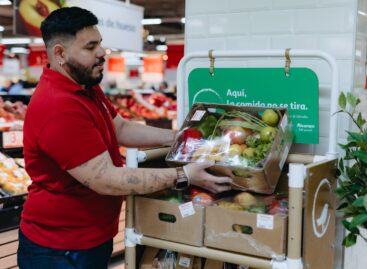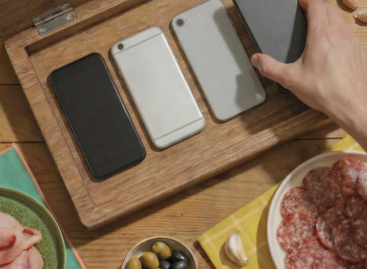Every fifth kilogram of food ends up in the bin: how much do you contribute?
The No Leftovers program of the National Food Chain Safety Office (Nébih) announces the assessment of household food waste for the fifth time. From October 16, the office is waiting for applications from volunteers who undertake to log for a week how much food goes into the bin in their homes. World Food Day is also an ideal opportunity to draw attention to the global problem of food waste. Fruzsi Viszkok also joined his team in this without Maradék.

(Photo: Pixabay)
A fifth of the food produced worldwide ends up in the trash, while one in ten people go hungry. According to the latest estimates, 883,000 tons of food is thrown away in Hungary every year, a significant part of which is produced in households: approx. We produce 60 kg of food waste per person, of which 24 kg could be prevented. At today’s prices, wasted food represents a loss of about HUF 40,000 for an average citizen, while its total amount is such that 430,000 people could eat three meals a day for a year.
The Nébih No Leftovers program has been monitoring the amount of food waste generated in Hungarian households since 2016
Applications for the latest, fifth survey will start on October 16, the World Food Day, and the registration interface is available on the website of “Maradék nélkül”. The main purpose of the research is the collection of data, but as part of it, the formation of attitudes and the collection of good practices also play a role. The participants, in addition to getting to know how their own household’s situation compares to the national average, will also be enriched with information materials and small gifts.
On World Food Day, the No Leftovers program also wants to draw attention to the problem of food waste and good solutions
This year online content creator and book writer Viszkok Fruzsi is helping the office. The well-known opinion leader shares practical tips on his website to help develop sustainable kitchen habits, such as, for example, if you have several pieces of something at home, use the oldest one first. Additional tips for avoiding food waste can be found on Viszkok Fruzsi’s Instagram and on the Facebook and Instagram pages of the No Leftovers program.
Nébih
Related news
Avian influenza has appeared in a new farm in Csongrád-Csanád County
🎧 Hallgasd a cikket: Lejátszás Szünet Folytatás Leállítás Nyelv: Auto…
Read more >Alcampo Boosts Fight Against Food Waste With ‘Happy Box’
🎧 Hallgasd a cikket: Lejátszás Szünet Folytatás Leállítás Nyelv: Auto…
Read more >Related news
Festival buzz at the 60th anniversary EuroShop trade fair
🎧 Hallgasd a cikket: Lejátszás Szünet Folytatás Leállítás Nyelv: Auto…
Read more >No matter how much you save, food and gadgets always take the money
🎧 Hallgasd a cikket: Lejátszás Szünet Folytatás Leállítás Nyelv: Auto…
Read more >Historic price reduction at ALDI
🎧 Hallgasd a cikket: Lejátszás Szünet Folytatás Leállítás Nyelv: Auto…
Read more >







